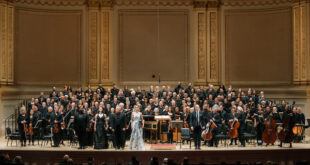Music has always had the power to inflame people's passions. From ultra nationalist songs that whip up hatred against others to religious music that inspires devotions, music has the potential to have the strongest and most immediate emotional impact of all the arts. Therefore, it's little wonder that down through the years music and songs have been written to express both dissatisfaction and appreciation for the way the world is going.
While I'm sure you can find examples of protest songs from almost every era of civilization, just check out the Irish songs about the British occupation. It really wasn't until the twentieth century that English language protest songs began to take the shape that we are familiar with. Most of the early ones dealt with the plight of the working class in North America and called for the establishment of unions. As the twentieth century progressed, and fell into the depression of the 1930s, songs about the plight of the poor farmers and the social/political system that could allow the crises to happen began to be heard.
However it wasn't until after WWll and the popularization of folk music that protest songs began to obtain widespread popularity in English speaking North America. With first the civil rights movement in the United States, and then the war in Vietnam, causing people to question the moral authority of government and society's inequities protest, songs and the people who sang them gained widespread popularity. Country Joe McDonald's "Feel Like I'm Fixing To Die Rag", and Bob Dylan's "The Times They Are A Changing" were along the lines of typical folk songs, while Jefferson Airplane's "Volunteers Of America" showed that the protest song didn't have to be limited to just folk singers.
Yet, after only a relatively short time, the protest song's popularity died again. It seemed that when the impetus created by the unique combination of events and circumstances that had fostered the movement for social change died, so did interest in listening to songs about what was wrong with society or other people's troubles. While punk bands like the Clash, or musicians like Billy Bragg made no bones about their politics and did their best to motivate their listeners, the majority weren't interested. Like punk, rap, and hip-hop had the potential to speak for the disenfranchised, but it was co-opted until now it glorifies the very things it originally protested against. (Check out the the lyrics of any Grandmaster Flash song from the early eighties and compare it to what's being sung as rap now and you'll see what I mean.)
Now that doesn't mean that protest music is dead, it just means you have to look a little bit harder to find it. As a public service, the good people at Ruf Records in Germany are releasing a new compilation CD of protest music recorded in the last few years. Rich Man's War: New Blues & Roots Songs Of Peace And Protest is a collection of topical blues songs that were written in response to the first American presidency of the 21st century. While Ruf Records is distributing the disc, only two of the performers appearing on it are from their label, as producer Kenneth Bays has searched out recordings by as diverse a group of blues players as he could find. You'll notice that some of the songs seem to stretch the definition of blues somewhat, which explains the slightly unwieldy title, but does nothing to diminish the quality of the music.
I guess it only shows how unpopular protest songs have become when of the twelve songs on the disc not only have I only heard two of them before, "Follow The Money" by Bob Brozman and "Jesus And Mohammed" by Candye Kane, but I only recognized the names of two of the other musicians who had contributed to the recording; Guitar Shorty and Eddy "The Chief" Clearwater. Which is a great pity, because not only are the songs on this disc all intelligent, and sometimes quite funny, but even better, they are all good pieces of music. Protest music has received a bit of bad rap over the years for being painfully earnest and painful to listen to as its been willfully misrepresented by those who'd rather we'd not be reminded that the world isn't quite the way the government depicts it.
Needless to say, as the songs collected here are all in direct response to the Bush administration and its policies, their primary focus is on topics that have dominated the newspapers since his election. What was nice to see was how each of the performers found a way to address the issue they chose to talk about without resorting to making villains out of people like the soldiers being sent overseas, but attacked the policies and motivations of those who made the decision to send them. Even better, there are a couple of songs that don't even resort to blaming anybody in particular, but instead seem to be shaking their heads with regret at the whole damn situation.
Two of the best songs on the disc are the previously mentioned "Jesus And Mohammed" by Candye Kane and "A Time For Peace" by Eddy "The Chief" Clearwater. In the former, Candye Kane imagines a conversation taking place between the two prophets and them shaking their heads in disbelief at how their followers could have screwed up their respective messages so badly. "This isn't what we wanted, both were heard to say, how could our words of love lead us to this day/ Oh my children don't you understand, misery and hatred won't get you to the promised land". Sung along the lines of a country/blues gospel number, and especially with Candye Kane's big and expressive voice, the song is a particularly effective condemnation of the hatred generated by all those who would have their followers on either side believe they are fighting a holy war.
Like Candye Kane, Eddy "The Chief" Clearwater has turned to the gospel roots of blues music for his song, complete with an echoing organ solo and church choir. "How many politicians have to lie? How many good soldiers have to die?". What makes this song so effective is the stark simplicity of its message, "It's time for love/It's time for peace/It's time for war… to cease", and the genuine passion that he and the choir are able to bring to what they are saying. "A Time For Peace" is a genuine prayer for peace that transcends individual religions or politics and reminds us if we don't keep love in our hearts we're no better than those we criticize for making war.
Rich Man's War is a collection of intelligent, musically interesting songs that also happen to have been written in response to events of the last eight years. You probably won't have heard many of the songs on this disc performed before, and you may not have even heard of some of the performers themselves. However, after eight years of listening to one version of events and maybe starting to feel a little uncomfortable with what you've been told, don't you think it's about time to give some other opinions a chance? This CD represents that chance – maybe you should give it a listen.
 Blogcritics The critical lens on today's culture & entertainment
Blogcritics The critical lens on today's culture & entertainment



